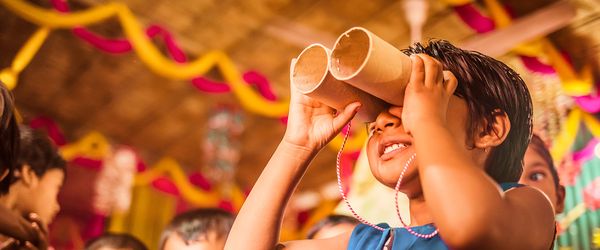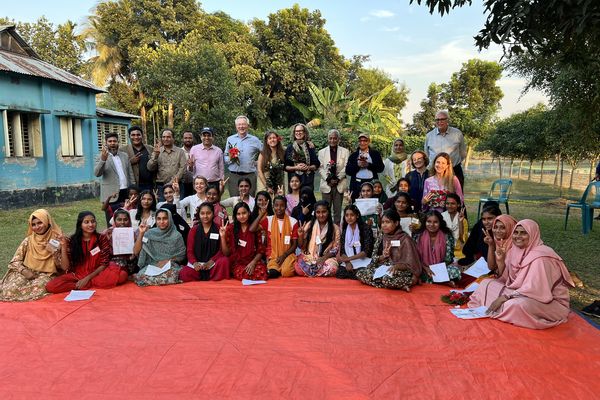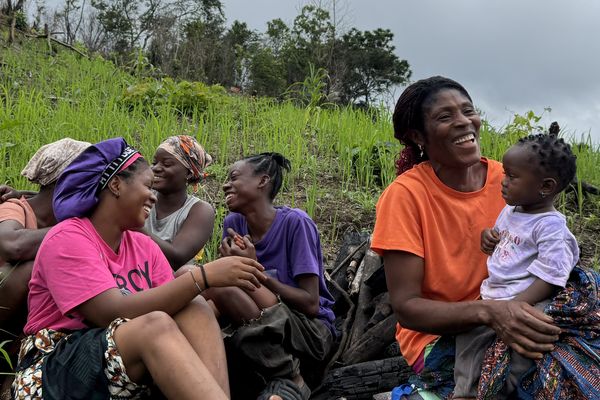BRAC faced a tough problem in the early 80s: we needed to deliver large amounts of vaccines to rural poultry farmers in hard-to-reach parts of Bangladesh. The vaccines had to be kept chilled, but we had no cold storage and could not afford to buy any. How could we keep vaccines cold long enough to use them in rural areas that lacked refrigeration?
We found a solution. It was unconventional, but it worked – ‘banana immunization’.
Bananas grow in every village and along many rural roads in Bangladesh. The most common ones are of a small variety and are sweet and nutritious. Most importantly, their flesh is just slightly cooler than their skin. They were readily available, free, mini fridges – bananas provided just the right insulation to preserve vaccines for their journey to remote areas. Staff inserted the vaccine vials inside the bananas and, as an added benefit, the bananas also helped to protect the vials from breaking when travelling over rough terrain.
It did not take a lot of money or resources to achieve this – just some good old fashioned, creative problem solving, and the courage to believe it would work.
Fast forward to 2017, when almost a million Rohingya fled Myanmar and into Bangladesh. They were desperate, malnourished and most had experienced more trauma than many people will in a lifetime. Half of them were children, many who had lost parents.
BRAC sprang into action within days, setting facilities in every sector, with a particular focus on children, through child-friendly spaces. These spaces provided safety and fun, giving children much-needed respite from the trauma they were experiencing. Over the next months, these spaces evolved into Humanitarian Play Labs. The idea was simple: children living in fragile humanitarian settings deserve the chance to heal and learn, and play was an ideal vehicle for it.
The model was contextualized from BRAC’s experience in promoting play as a learning tool for young children. Play therapy is a curative tool to address children’s behavioral and psychological issues. Play is the way children learn, develop and understand the world around them. This is especially important for children in fragile settings, where they are exposed to increased fear, poverty and instability. Play helps children better manage trauma caused by their experiences.
Twelve months on, thousands of children were growing up in Humanitarian Play Labs, and the pictures of guns and dead bodies they had drawn when they arrived were replaced by animals and trees. What brought on the change? Safe spaces to play in, a play curriculum based around games played by Rohingya children in Myanmar, Play Leaders who spoke Rohingya language and had skills in psychosocial counselling, and the larger involvement of the Rohingya community in designing, building, decorating and running the Play Labs.
In a world where nearly one person is forcibly displaced every two seconds as a result of conflict or persecution, BRAC’s Humanitarian Play Labs hold an important key to making sure children living in the most vulnerable situations get the biggest start in life.
Whether it is getting vaccines to farmers or getting play to children who have been displaced, our development models are homemade and cost-effective. We combine local insights, indigenous methods and a deep understanding of community dynamics to design development models that are relevant, and that make sense for that community.



